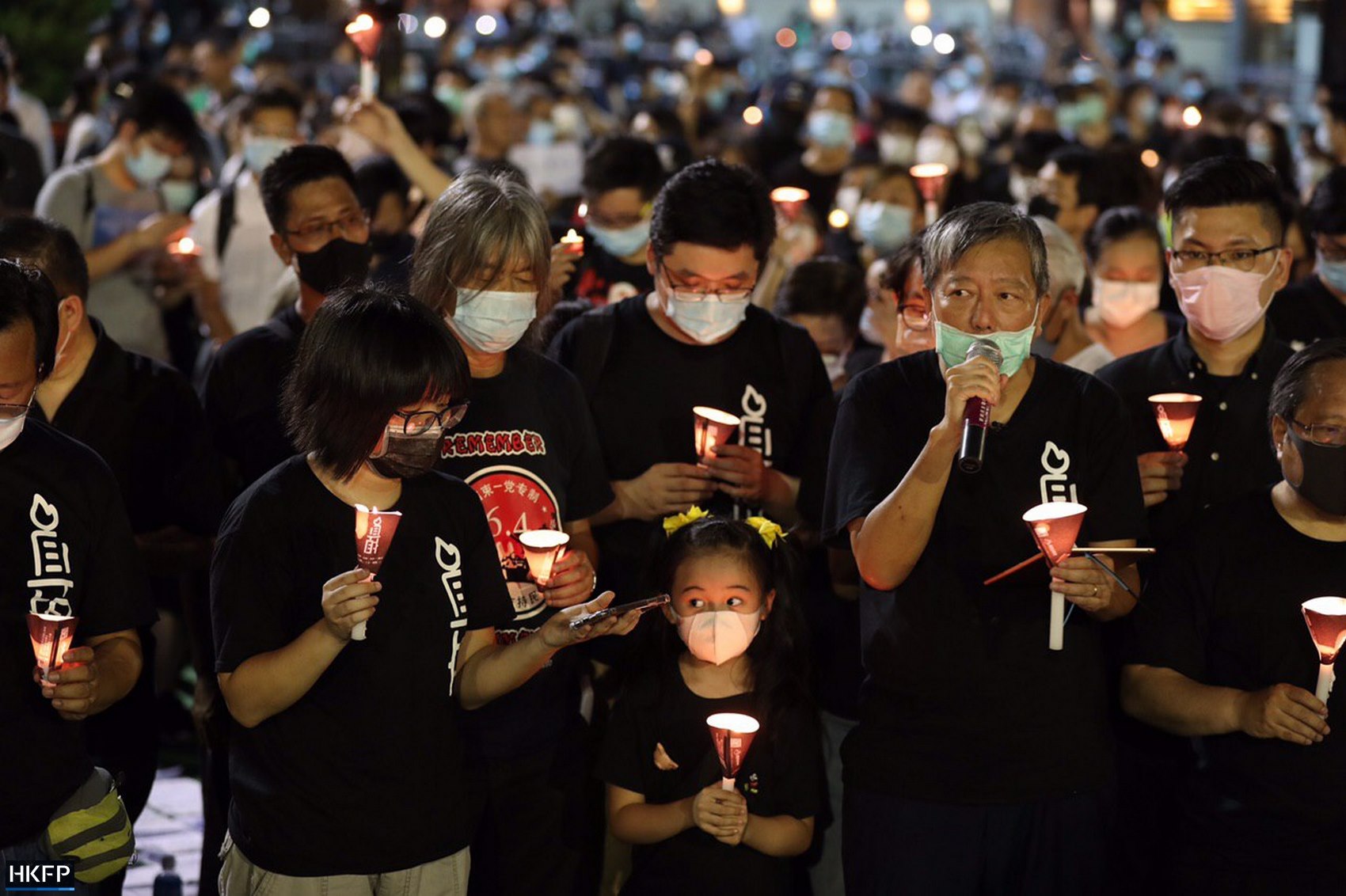
The future of Hong Kong’s annual candlelight vigil to commemorate the 1989 Tiananmen Square Massacre – which was officially banned for the first time in three decades last year due to Covid-19 restrictions – has been cast into further doubt after the city’s leader, Carrie Lam, invoked the Beijing-imposed national security law.

When asked by reporters on Tuesday whether the city’s annual June 4 vigil in Victoria Park in Causeway Bay will be allowed to go ahead – amid rumours that an application to host the event might be struck down by police – the Hong Kong leader said that would depend on whether or not such a gathering breached the new national security law.
“It much depends on what is going to happen in those gatherings and whether they will fall into the offences expressly prohibited in the national security law — that is involved in secession, subversion of Central government and the Hong Kong SAR government, engaging in terrorist activities or collusion with an external party to endanger national security,” Lam said.

In June 2020, Beijing inserted national security legislation directly into Hong Kong’s mini-constitution – bypassing the local legislature – following a year of pro-democracy protests and unrest. It criminalised subversion, secession, collusion with foreign forces and terrorist acts, which were broadly defined to include disruption to transport and other infrastructure. The move gave police sweeping new powers, alarming democrats, civil society groups and trade partners, as such laws have been used broadly to silence and punish dissidents in China. However, the authorities say it has restored stability and peace to the city.
Citing unnamed sources, local pro-establishment newspapers Sing Tao Daily and HK01 reported on Monday that police may not allow this year’s vigil to go ahead to avoid crowds from congregating under the coronavirus pandemic.
The Tiananmen crackdown occurred on June 4, 1989 ending months of student-led demonstrations in China. It is estimated that hundreds, perhaps thousands, died when the People’s Liberation Army cracked down on protesters in Beijing.
‘End one-party rule’
Thousands of Hongkongers gathered at the park last June to commemorate massacre, despite police refusing to give permission to organisers citing public health concerns.
It was the first time in the vigil’s 31-year history that police refused to issue a letter of no objection to the event’s organisers, and 26 prominent pro-democracy activists were charged with either participating in or inciting others to take part in an unlawful assembly. The incitement charge carries a sentence of up to five years in jail.

When asked by another reporter whether slogans like “end one-party rule” — which was routinely used in past June 4 events — would be allowed, Lam said: “We in the Hong Kong SAR need to respect the country’s constitution, and the constitution clearly says that socialism with Chinese characteristics is led by the Chinese Communist Party.
“Under the premise of respecting the constitution, we should also respect the Chinese Communist Party,” she said.

Chow Hang-tung, vice-chairperson of Hong Kong Alliance in Support of Patriotic Democratic Movements of China, the main organiser for June 4 events, told HKFP the group will submit its application on Tuesday for police approval to host the vigil this year, and will not avoid the use of specific slogans, despite Lam’s comments.
“I think she is trying to create an atmosphere, so people will be afraid of going [to the vigil],” said Chow. “She had not pointed out any specific issue [relating to the event].”
“People will weigh whether to do it or not. I believe some people will show up — the level of risk tolerance for everyone is different,” she said.
Support HKFP | Policies & Ethics | Error/typo? | Contact Us | Newsletter | Transparency & Annual Report | Apps
Help safeguard press freedom & keep HKFP free for all readers by supporting our team



















